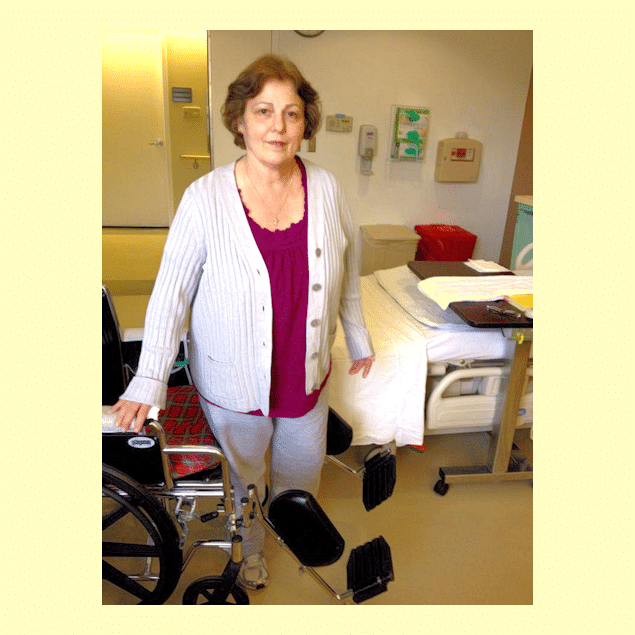The Music Within
In dreams, as in life, the unexpected comes from out of nowhere. I found myself depending on them to take me back in time to a more carefree and peaceful place. My dreams repeatedly returned me to the days of my youth, of summers spent camping near the ocean shores of South Carolina – how it felt to gaze into the vast, beautiful ocean with gentle breezes blowing, and birds majestically waltzing across an amber-tinged sky. I sensed that those memories would somehow sustain my quest to emerge from spiraling into the deep waters of loss that appeared to engulf the space between breathing in and breathing out. No middle ground or foundation seemed to exist. I would either sink or find a way to fly.
I can remember talking to my family while lying in a hospital bed. The accident happened less than a week after my daughter’s wedding. I took great comfort in the fact that at least I had danced at her wedding. At the time it was not possible for me to do things previously considered to be simple acts, such as sitting up on my own or turning over in bed. With the darkening of the evening sky, when the only remaining sounds came from a television mounted on the facing wall and nurses coming in and out of the room, an uneasy veil of helplessness would fall vicariously across the inner structures of my existence. It was as if I had somehow found myself wandering through a thick and shadow-filled jungle. In the distance, the thump, thump, thump of the unknown approached and an overwhelming sense of helplessness threatened to seek abode within. Try as it may, the darkness never took hold. I had danced, and I was not yet done. If I closed my eyes and listened hard enough, I could hear the band still playing. The stifling jungle became a softly lit ballroom, and with a one, two, three . . . one, two, three . . . one, two, three, I found the courage to face the music and dance.
Due to the loss of my lower left leg – one of the injuries resulting from the vehicle in which I was a passenger, crashing into a bridge abutment – many common, basic chores became harder to do. On more than one occasion I slumped into a pile of relinquishing stamina, whining within as I questioned why things had to be so hard. My way of thinking about and doing tasks required changing.
While staying in a rehabilitation facility where I was learning to walk with a prosthetic leg, I awoke during the night, engulfed in an overwhelming expanse of sadness. What I was experiencing wasn’t coming as a result of unhappiness, physical pain, or even exhaustion. I knew it was the emotional response of someone in mourning. An awareness of being filled with grief over the loss of my left leg began to fill every fiber of my being. I realized I’d never taken the time to mourn what I’d lost. After the accident, I quickly accepted what had happened to me and what needed to be done in order to move forward. But I had never grieved over what was now lost to me forever. From the window across the room, a soft beading of white gently illuminated the darkened sky. Falling snowflakes appeared to be trying to soothe the load currently resting across my chest. The silence residing in a nighttime sky seemed to whisper reverential wisdom about loss, longing and the power of perseverance.
I do a lot of counting and phrasing in my thoughts. The rhythmic, now routine process of setting and concentrating on mental beats is something I do to help me maneuver through daily tasks. Following their lead, I work to echo their momentum as I walk, climb stairs, and carry out daily needs and responsibilities. Life for me is now lived at a slower pace. It is the music within that guides my course and shapes my life. It is the search for the proper beat and the effort to move with that beat. At times, it is as natural as a summer breeze. On other occasions, it’s a process of stumbling in the dark until a light switch can be located.
The struggle to obtain the proper care and appropriate devices for living life to its fullest capacity is often met with frustration. When there is hope for receiving the needed resources, it can quickly be extinguished through either the complete denial of or refusal to approve the best prosthetic device for your specific needs, or the exorbitant personal-pay costs from insurance agencies.
It is not possible to look at someone and truly know what it takes for them to do things that most individuals do without even thinking – or feeling the depth of difficulty that a once-simple task now requires. A prosthesis is not a luxury; it is a quality-of-life necessity. It allows a child to play and a parent to give the best possible care to their child. It makes for more productive and contributing leaders and coworkers. It is the difference between “I wish I could” and “Yes, I’ve taken care of it.”
As legislators consider decisions on policies that have such tremendous significance and consequences for amputees, I encourage them not to say, “I wish I could,” but rather to make known to amputees and to those who share their journey, “Yes, I’ve taken care of it” The results of such conscientious actions benefiting amputees would have a far-reaching and positive impact on the lives of so many.


